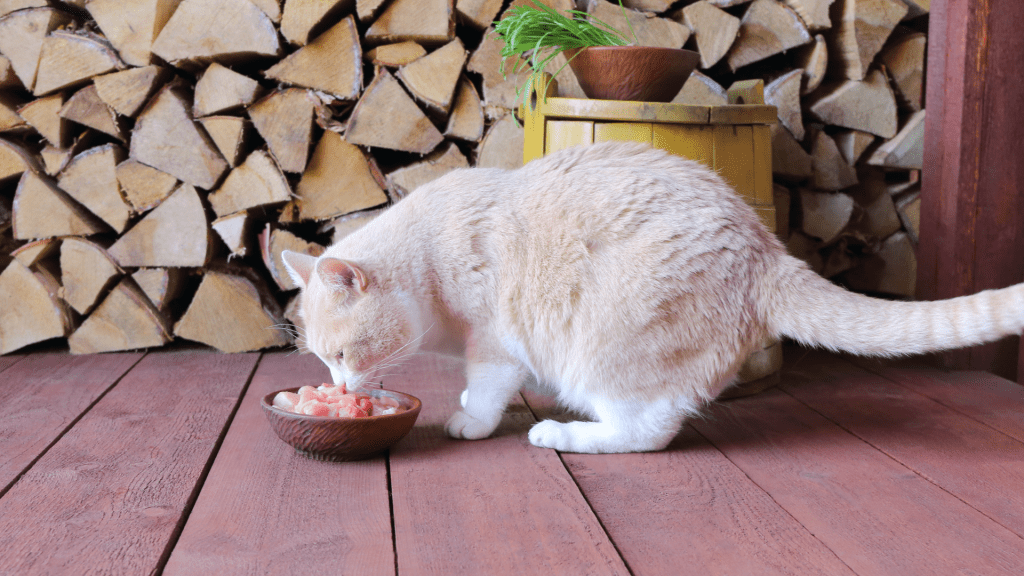Deli meat, such as ham, turkey, and roast beef, is a common food item found in many households. Some cat owners may be wondering if it is safe to share this type of food with their feline companions.
While cats are primarily carnivorous and can benefit from a diet that includes animal-based proteins, it is important to consider the potential risks and benefits of feeding deli meat to cats.
It is generally safe for cats to eat deli meat in small quantities as an occasional treat. Deli meat can provide a source of protein for cats, which is an important nutrient for their overall health and well-being. However, it is important to keep in mind that deli meat is not a complete and balanced meal for cats and should not be fed as a replacement for a high-quality commercial cat food.
In this article, we will elaborate the question of whether or not cats can eat deli meat and provide some guidance for cat owners who are considering adding this type of food to their pet’s diet.
What Is Deli Meat AKA Cold Cuts?
Deli meat, also known as cold cuts, is a type of processed meat that is typically sliced thin and served cold or at room temperature. Deli meats can be made from a variety of meats, including pork, beef, turkey, and chicken.

Some common types of deli meat include ham, turkey, roast beef, and salami. Deli meats are often served on sandwiches, in salads, or as part of a charcuterie board.
Deli meats are typically made by curing, drying, smoking, or cooking the meat to preserve it and give it a distinctive flavor. They are then sliced thin and packaged for sale. Some deli meats are cooked or smoked, while others are raw and must be cooked before being eaten.
Can Cats Eat Deli Meat?
As mentioned earlier, cats can safely eat deli meat in small quantities as an occasional treat. However, it is important to keep in mind that deli meat is not a complete and balanced meal for cats and should not be fed as a replacement for a high-quality cat food.
One potential benefit of feeding deli meat to cats is that it can provide a source of protein, which is an essential nutrient for their overall health and well-being. However, it is important to note that deli meat is not the best source of protein for cats, as it is often high in sodium and may lack some of the other nutrients that cats need.
There are also potential risks associated with feeding deli meat to cats. For example, deli meat is often high in sodium, which can be harmful to cats if consumed in large amounts. In addition, some types of deli meat may contain additives or preservatives that could be harmful to cats. For example, some deli meats are cured with nitrates or nitrites, which have been linked to an increased risk of cancer in some animals.
Overall, while it is generally safe for cats to eat deli meat in small quantities as an occasional treat, it is important to consider the potential risks and benefits before deciding to feed this type of food to your cat.
Types Of Deli Meats You Should Avoid Giving Your Cat
There are many different kinds of Deli Meat, and with so many different options it can be hard to narrow down some that you really should give your cat, even if it’s a tiny amount. Here are some types of Deli Meats you should avoid letting your cat eat.

- Deli meats that are high in sodium:
- Many deli meats are high in sodium, which can be harmful to cats if consumed in large amounts. Too much sodium can lead to an electrolyte imbalance and potentially cause kidney damage in cats. It is important to avoid feeding deli meats that are high in sodium to your cat.
- Deli meats that contain additives or preservatives:
- Some deli meats may contain additives or preservatives that could be harmful to cats. For example, some deli meats are cured with nitrates or nitrites, which have been linked to an increased risk of cancer in some animals. It is best to avoid feeding deli meats that contain these types of additives to your cat.
- Raw deli meats:
- Raw deli meats can be contaminated with bacteria, such as Salmonella or E. coli, which can cause food poisoning in humans and animals. It is important to avoid feeding raw deli meats to your cat, as they may be more susceptible to foodborne illness due to their small size and weaker immune systems.
- Cooked deli meats that have been left out at room temperature:
- Cooked deli meats that have been left out at room temperature for an extended period of time can become contaminated with bacteria. It is important to avoid feeding your cat deli meats that have been sitting out for a long time, as they may be at risk of food poisoning.
By avoiding these types of deli meats, you can help to ensure the safety and well-being of your cat. It is always best to consult with a veterinarian before making any changes to your cat’s diet.
How To Safely Feed Deli Meat To Your Cat
Deli meat, such as ham, turkey, and roast beef, can be a tasty and convenient treat for cats. However, it is important to consider the potential risks and benefits before deciding to feed this type of food to your cat. Here are some precautions to take and tips for safely introducing deli meat into your cat’s diet:
- Consult With A Veterinarian:
- Before making any changes to your cat’s diet, it is important to consult with a veterinarian. They can advise you on the safety and nutritional value of deli meat for your cat and help you to determine the appropriate amount to feed.
- Choose Low-Sodium Deli Meats:
- To minimize the risk of sodium toxicity, it is best to choose deli meats that are low in sodium. Look for brands that are specifically formulated for pets or that are labeled as “low sodium” or “no salt added.”
- Feed Deli Meat in Moderation:
- Deli meat should be fed to cats only as an occasional treat, and in very small quantities. It is not a complete and balanced meal for cats and should not be fed as a replacement for a high-quality commercial cat food.
- Avoid Feeding Raw Deli Meat:
- Raw deli meat can be contaminated with bacteria, such as Salmonella or E. coli, which can cause food poisoning in humans and animals. It is important to avoid feeding raw deli meat to your cat and to always cook deli meat thoroughly before feeding it to them.
- Introduce Deli Meat Gradually:
- If you are introducing deli meat into your cat’s diet for the first time, it is best to do so gradually. Start by offering a small amount and gradually increasing the amount over a period of several days. This will allow your cat’s digestive system to adjust to the new food and can help to reduce the risk of digestive upset.
Positives to Feeding Your Cat Deli Meat
There are a few potential positives to cats eating deli meat:

- Protein
- Deli meat is a good source of protein, which is an important nutrient for cats.
- Convenience
- Deli meat is easy to store and can be easily portioned out as a snack or added to a meal.
- Palatability
- Many cats enjoy the taste of deli meat and will eagerly eat it.
It’s important to note, however, that deli meat is not a complete and balanced diet for cats and should only be fed in moderation as a treat. Cats require a diet that is specifically formulated for their nutritional needs, which typically includes a combination of wet and dry food.
Negatives To Feeding Your Cat Deli Meat
There are several negatives to consider when it comes to feeding your cat deli meat:
- Lack of Essential Nutrients:
- Deli meat is not a complete and balanced diet for cats and does not provide all the nutrients that they need. Cats require a diet that is specifically formulated for their nutritional needs, which typically includes a combination of wet and dry food.
- Risk of Bacterial Contamination:
- Deli meat is often processed and handled by many people, which increases the risk of bacterial contamination. If the meat is not handled or stored properly, it can become spoiled or contaminated with harmful bacteria, such as Listeria or Salmonella, which can cause illness in cats.
- High Sodium Content:
- Many types of deli meat are high in sodium, which can be unhealthy for cats in large amounts. High sodium intake can lead to dehydration, high blood pressure, and other health problems in cats.
- Risk of Choking:
- Deli meat should be sliced or shredded into small pieces to prevent the risk of choking in cats.
- Allergies:
- Some cats may have allergies to certain types of meat, including deli meat. Symptoms of a meat allergy in cats may include vomiting, diarrhea, and skin irritation.
In summary, it’s best to avoid feeding your cat deli meat as a regular part of their diet and only offer it as an occasional treat in small amounts.
Final Thoughts
In summary, deli meat can be fed to cats as an occasional treat in small quantities. While it does provide protein, it is not a complete and balanced meal and should not replace commercial cat food. Risks of feeding deli meat to cats include the possibility of sodium toxicity and bacterial contamination.
To minimize these risks, cat owners should choose low-sodium deli meats and avoid feeding raw deli meat. It is also advisable to introduce deli meat gradually into a cat’s diet. As with any dietary changes, it is important to consult with a veterinarian before feeding deli meat to your cat.
